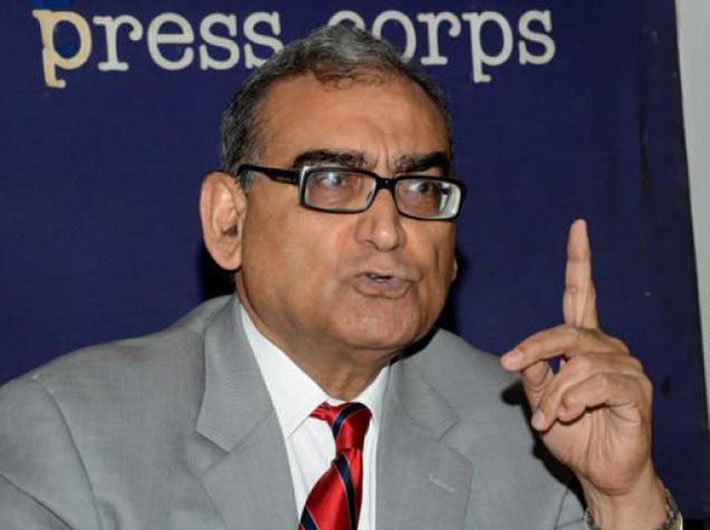Those who know him well, from his Allahabad days, would testify that despite his hectoring conduct that bordered bullying, he was known for writing lengthy judgments with a scholarly pretence.
Justice Markandey Katju was a regular visitor of a bookshop in Connaught Place’s Janpath market. Once he bought a series of books by Winston Churchill on World War II, much to the pleasure of the shop owner who was impressed by the intellectual quest of a supreme court judge. Unlike other visitors who keep their reading habits a personal affair, justice Katju’s love for books was so ostentatious that it often evoked a range of sentiments, from curiosity to amusement.
Those who know him well, from his Allahabad days, would testify that despite his hectoring conduct that bordered bullying, he was known for writing lengthy judgments with a scholarly pretence. His formulations often had little connection with the subject of the cases he dealt with. As an Allahabad high court judge, he made pronouncements on OBC reservations while writing a judgment on an unrelated matter, leading to a legal quandary.
More recently, as a supreme court judge, he took a jibe at the Allahabad high court and said there was something “rotten there”. It does not matter to justice Katju that he was part of the judicial system and had enjoyed all perks and facilities that the system bestowed on him. For instance, his post-retirement job of the press council chairman was hardly a reward for his scholarship or talent. In Arun Jaitley’s words, it was a gift from the UPA government to allow him to occupy a bungalow in Lutyen’s Delhi after retirement for the services rendered to the Congress.
Remember the manner in which he launched a vicious attack on the then Bihar chief minister Nitish Kumar and accused him of curbing press freedom? Without bothering to go into the merits of the allegations, he came to the conclusion that the press freedom in Bihar was throttled in a systematic manner by doling out advertisements to certain newspapers. Prabhat Khabar editor (and now Rajya Sabha MP) Harivansh countered him with statistics and issued a powerful rejoinder. Justice Katju chose to ignore it.
Similarly, he launched an attack on the Gujarat government and Narendra Modi, in particular, in a signed article which provoked strong reaction from Arun Jaitley. He blamed Modi for the post-Godhra riots and dismissed Gujarat’s development model as consisting nothing more than concessions to industries. His fulminations against Modi and Nitish served the ruling UPA quite well.
Justice Katju’s background is not uniformly illustrious. It is worth recounting some shades of the dubious in that, especially in the context of his recent allegation that the UPA government had buckled under pressure from the DMK to appoint a man with doubtful integrity as a Chennai high court judge. He has alleged successive chief justices of India and collegiums that appoint judges chose to look the other way when objections were raised in this case. Circumstantial evidence suggests justice Katju had indeed flagged the issue, but avoided going overboard as it would have found him on the wrong side of those in power – whether in the supreme court or the government. He avoided repeating what he said about the Allahabad high court, that there was something rotten there.
After a decade, justice Katju decided to bring up the Chennai issue – at the right moment. With the NDA government firmly in saddle, he found it convenient to reveal the judiciary’s apparently darker side which he had kept a closely guarded secret all these years. The reasons are obvious. His term at the press council is coming to an end. Moreover, the NDA government seems determined to introduce reforms in judiciary and change the collegium method of appointing judges of the higher judiciary.
His revelation would come handy for the new political masters. There is little doubt that his conduct conforms to a pattern: loyalty to those in power. The façade of morality and ethics is just a convenient ploy to pay the rental of a bungalow in Lutyen’s Delhi – to whoever is its current owner.

